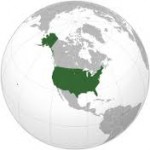by Nadia S. Mohammad

New York, New York – For the United States, a country that prides itself on religious pluralism, media coverage of religion continuously factors into political discourse and the voting booth.
When it comes to election coverage, religion — particularly Islam and Mormonism — has been treated as a “wedge issue” that divides Americans or a political liability for candidates. During elections, media often cover candidates’ faith affiliations, associations with prominent religious figures and general positions on issues important to certain religious groups as political controversies. Media plays a profound role in shaping how religion is viewed in the United States – and there is a great deal media can do to promote a more nuanced understanding of religion, especially when it comes to its intersection with politics.
During the 2008 presidential election, for example, the most frequently covered story on religion in US media was based on an unfounded rumour — that then-Senator Barack Obama was Muslim. This story, according to the Pew Forum on Religion and Public Life, constituted a third of all religion-focused campaign coverage.
In 2011, according to a Pew Forum report, six of the top 10 most frequently reported media stories were about events and controversies related to Islam and Muslims. These stories included Representative Peter King’s hearings on “radical Islam”, state anti-sharia measures, 9/11 commemorations and the Arab Spring. Political media coverage of these stories seemed to frame them as American national security concerns.
Recently, specific election-related coverage of Islam has focused largely on unfounded claims by five representatives in Congress that certain Muslims in government are connected to the Muslim Brotherhood, and reports that a slightly increased percentage of Americans still think Obama is Muslim, when compared to the period leading up to the 2008 elections.
According to the Pew report, questions about faith in presidential politics, particularly in relation to Mormonism, also featured prominently in media in 2011. It comes as no surprise that this year, coverage of the presidential election has focused on many of the same topics.
The report also found that there is still significant coverage of presidential candidate Mitt Romney’s faith in print and broadcast media. This coverage has negatively affected the discussion of Mormonism in public forums such as blogs, with negative comments echoing mainstream media reports that Romney’s faith will be of importance to some voters. But recent polls show that despite perceived negative views about Mormonism, most voters do not find Romney’s faith to be relevant to his qualifications as a presidential candidate.
The political media discussions around certain religions seem to justify the “otherisation” of members of certain faith groups in society. Muslims and Mormons, for instance, are often only identified by their faith when there is a problem or perceived controversy.
In the media, political debates about “moral values” are usually linked to conservative Christian values. However, both Islam and Mormonism stem from Abrahamic tradition and share many of these values, as do other faiths. These shared values, though, are rarely highlighted. Moreover, members of these religions are not homogenous voting blocs. What may be of importance to one Muslim voter may not be important to another.
The biggest challenge for those covering religion and the elections is to have a proper understanding of all American religions so that they can report on issues related to faith with nuance. Instead of turning faiths into auxiliary wedge issues, the focus should instead be on each candidate’s platforms. And to counter the “otherisation” of minority faiths, more in-depth coverage should be given to the similarities between the religions and social needs of voters from diverse faiths and backgrounds.
Above all, those reporting on political controversies surrounding religion have the power to decide how long a controversy surrounding a religion remains in the media and how much attention is given to it, as well as who pays attention to and in what context. This power should be used responsibly.
###
* Nadia S. Mohammad is an Associate Editor of AltMuslimah.com. This article was written for the Common Ground News Service (CGNews).
Source: Common Ground News Service (CGNews), 14 August 2012,www.commongroundnews.org
Copyright permission is granted for publication.
.







